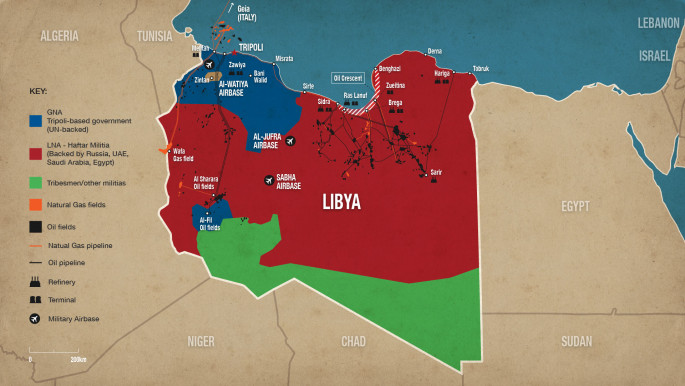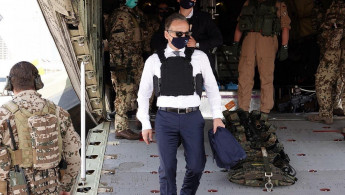German foreign minister warns of ‘deceptive calm’ on surprise visit to Libya
German Foreign Minister Heiko Maas, visiting war-torn Libya's capital on Monday, warned of a "deceptive calm" since fighting has stalled around Sirte, the strategic hometown of fallen dictator Muammar Al-Gaddafi.
Outside powers are "continuing to massively arm the country," Maas, whose government has tried to broker peace in Libya, said during a surprise visit to the oil-rich North African nation.
"In Libya at the moment we are observing a deceptive calm," he said in Tripoli, seat of the UN-recognised Government of National Accord (GNA).
Libya has been in chaos since rogue General Khalifa Haftar launched ‘Operation Dignity’ against rival militias in the eastern city of Benghazi in 2014, and has become a major departure point for desperate migrants trying to reach Europe with the help of traffickers.
In April 2019, Haftar launched a massive assault to seized Tripoli which killed hundreds of people and displaced hundreds of thousands more.
After 14 months of fierce fighting, forces loyal to the GNA expelled Haftar's troops from much of western Libya and pushed them back east to Sirte, a gateway town to Libya's oil fields.
While the GNA has been boosted by Turkish and Qatari support, Haftar has had the backing of the United Arab Emirates, Egypt, Saudi Arabia and Russia.
Read also: Russia and Turkey on collision course in Libya’s conflict
Now, said Maas, "both sides and their international allies are continuing to massively arm the country and holding firm to their preconditions for a ceasefire".
'Dangerous situation'
Maas urged "ways out of this very dangerous situation" and backed a UN proposal to establish a demilitarised zone around Sirte, located 450 kilometres east of Tripoli.
According to Turkish media reports, Turkish Defence Minister Hulusi Akar was also in Tripoli on Monday.
Germany's top diplomat was next due to also visit the United Arab Emirates, which last week agreed to normalise diplomatic relations with Israel.
Maas said the UAE had "shown that it has the ability to make an important contribution to peace in the region" and added that now he also hoped "to see encouraging signs from Abu Dhabi on the issue of Libya".
"The United Arab Emirates is in a position to influence General Haftar, and we expect it to do so, in the spirit of the Berlin Process," he said.
"Only those who participate in a political process will be part of Libya's future," he added.
Maas said that in Libya he also wanted to discuss the fate of migrants stuck in detention centres, where human rights groups have reported widespread abuses and mistreatment.
"For a long time we have been calling for the closure of the detention centres and the establishment of alternatives in urban regions," he said, calling for "effective measures to finally combat human trafficking networks".

Follow us on Facebook, Twitter and Instagram to stay connected





 Follow the Middle East's top stories in English at The New Arab on Google News
Follow the Middle East's top stories in English at The New Arab on Google News
![Netanyahu furiously denounced the ICC [Getty]](/sites/default/files/styles/image_330x185/public/2024-11/GettyImages-2169352575.jpg?h=199d8c1f&itok=-vRiruf5)
![Both Hamas and the Palestinian Authority welcomed the ICC arrest warrants [Getty]](/sites/default/files/styles/image_330x185/public/2024-11/GettyImages-2178351173.jpg?h=199d8c1f&itok=TV858iVg)
